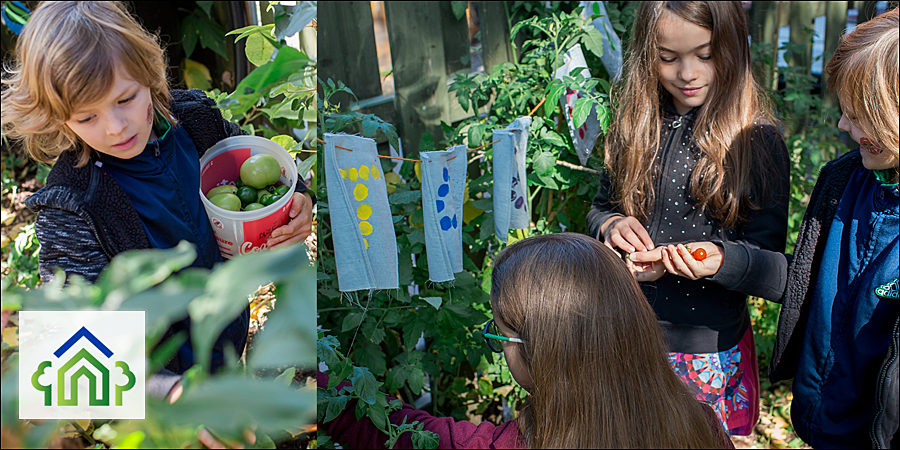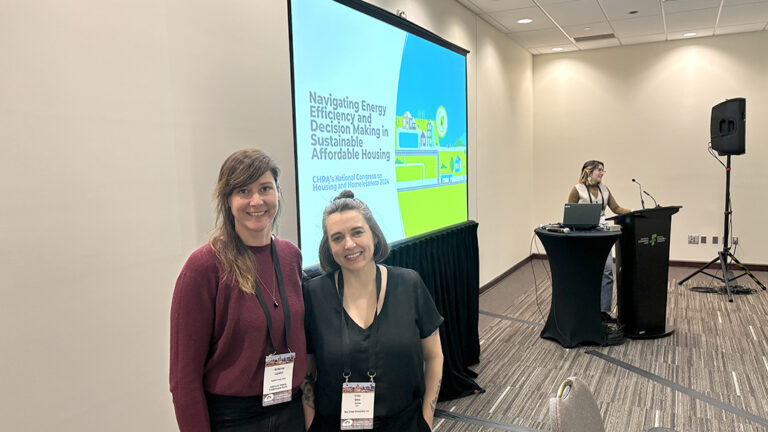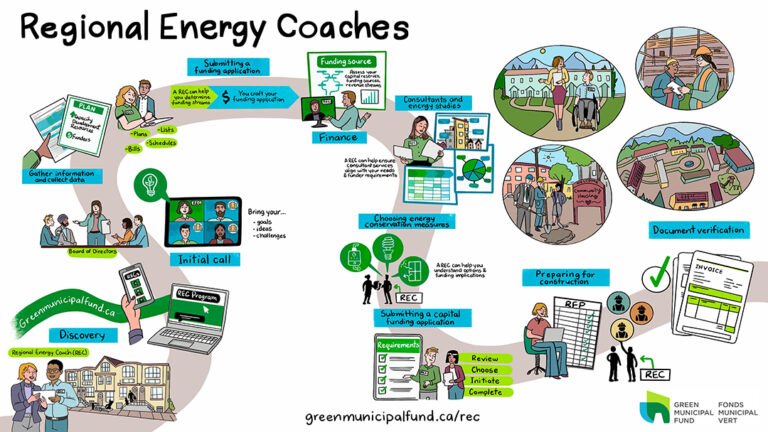Written by Jennifer Hille
In a world where climate change has presented us with new record heatwaves this summer, urgent action is needed if we are to prevent the worst outcomes of global warming. Thus, at the Centre, we define environmental sustainability as one of our key priority areas. As a community housing sector, we need to reduce our environmental footprint collectively. The Greener Co-op microgrants encourages Cooperative Housing Federation (CHF) of Canada’s cooperative housing members to conceive and implement projects that will inspire their communities to go green.
About the Greener Co-op Microgrants
The Microgrant program was launched in 2016 by CHF Canada and the Agency for Co-operative Housing. It is offered this year for the fifth consecutive time. This program funds small projects–anywhere from $500 to $4,000–that reduce greenhouse gases, improve air quality, or help co-ops adapt to climate change, and inspire others with best practices. Previously funded projects range from composting, community gardens, e-bike charging stations and bike storage, solar panels for powering gardening tools, lighting upgrades and many more.
“We are so excited to make this important contribution towards a greener community housing sector,” says Stéphan Corriveau, Executive Director at the Centre. “The Centre’s grant increases funding that CHF Canada has acquired through other partnerships. By making this contribution, the Centre widens the pool of accepted microgrants by three times. If we want sector transformation, it is great to start at an individual co-op level. This initiative brings sustainable effects across Canada, for example when a co-op decides to create a community garden and inspires others to join.”
Creating Greener Communities
How can we make co-ops greener every year? Aimed to encourage housing co-ops to carry out small projects to make their communities more sustainable, the Greener Co-op microgrants have enabled 103 co-ops to implement sustainable change so far. The small grants have supported co-ops that reduce greenhouse gas emissions, improve air quality, reduce water consumption, help them adapt to climate change, increase food self-sufficiency through community gardens, encourage co-op members to reuse, recycle and rehabilitate, and support active transport solutions. Enough criteria to get inspired! Even the grant money is green. It comes from a fund to offset greenhouse gases emitted when staff travel across the country by plane, train, or car.
“The Greener Co-op Microgrant program was designed to be an easy process for co-ops to apply and implement simple, yet impactful environmentally sustainable initiatives”, says Julie LaPalme, Greener Co-op Microgrants program manager at CHF-Canada. “The program is growing in popularity each year and we are very grateful for the Centre’s funding which is taking the program to a whole new level this year! Housing co-ops are thinking about how they can improve their environmental footprint and we are seeing more and more co-ops enthusiastically committing to a more sustainable way of living. In many cases, the microgrant program encouraged co-ops to consider how to lessen their impact on the environment that perhaps wouldn’t have happened otherwise or would have taken longer without the microgrant’s funding.”
Impact of Centre’s Funding
Once housing co-ops design and implement projects to help green their communities, the advantages are twofold. Not only does the co-op improve overall life quality as a community, but it can also save up substantially in energy costs. The microgrants have shown an impact throughout Canada across seven different provinces. This year alone 42 housing co-ops received just under $130,000 in microgrants. Approximately 6,000 residents participate in environmental footprint reduction initiatives.
“This program is an answer to one of the Centre’s priorities that we would like to support more often,” says Luc Labelle, project manager at the Centre. “We strongly encourage all community housing providers who have sustainable housing projects to give us a call. Let’s talk about your ideas and see if your project could be eligible for funding,” says Luc Labelle, Project Manager at the Centre.
Applications for Greener Co-op Microgrants are now closed for the year. To see if you are eligible to the Centre’s funding, please review our eligibility criteria.
Greener Co-op Microgrants: This program has funded 103 coops with $305,593 microgrant contribution since 2016.
Other funding partners include: Agency for Co-operative Housing, CHF BC, CHF Toronto, Community Housing Network, FECHIMM, Your Credit Union, Spice Management Group Inc, Community Housing Management Network, Carlson Wagonlit Travel, Marcil Lavallée, IRC Building Sciences Group, Iler Campbell LLP, Caisse d’economie solidaire, Lussier Dale Parizeau, and CQCH.
The Centre’s contribution: $100,000.00 from Sector Transformation Fund – Local Project



